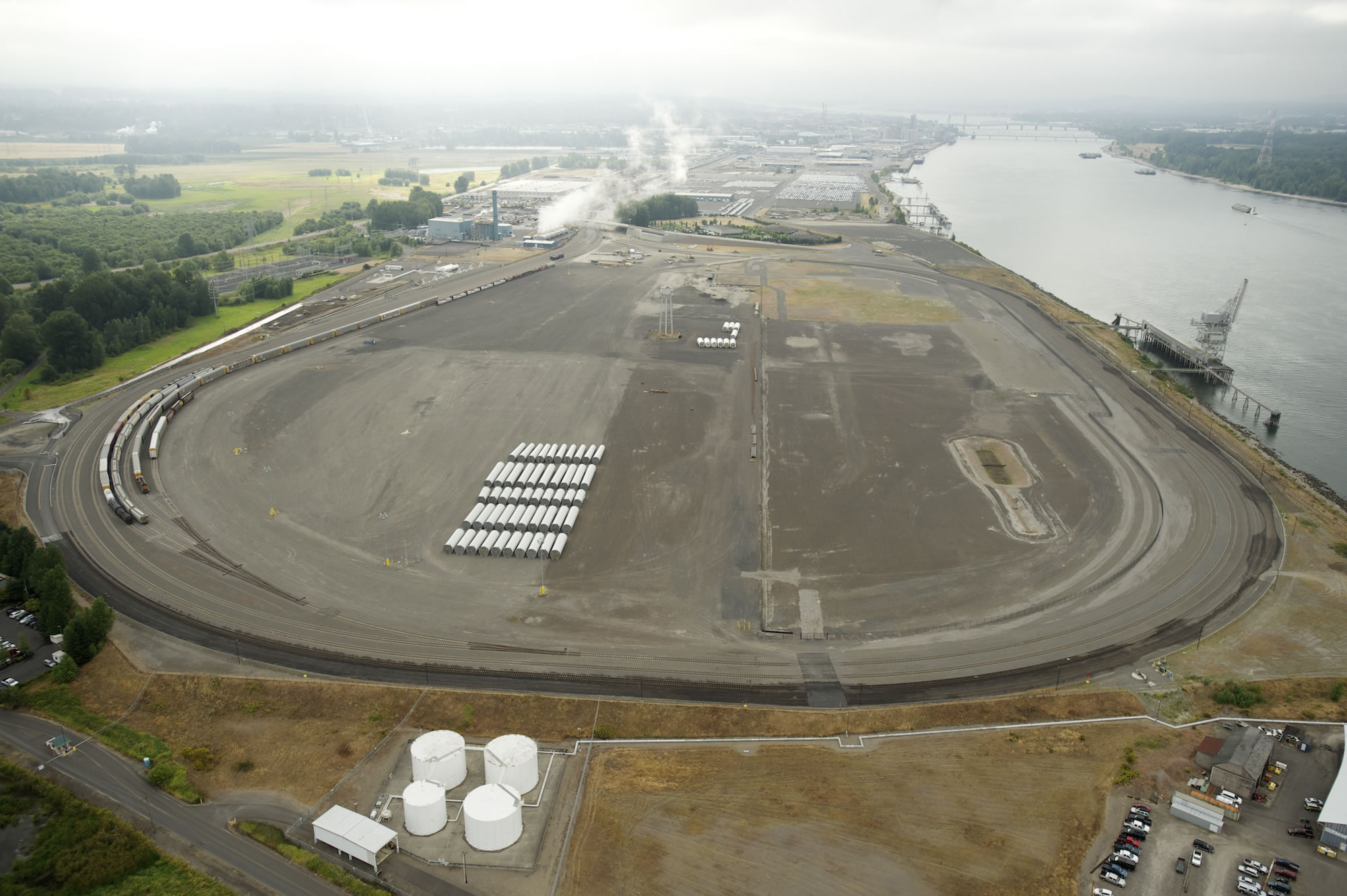The Washington state Auditor’s Office is reviewing a complaint filed by a Vancouver resident about the Port of Vancouver’s decision to bar the public from a discussion of a controversial proposal to build the Pacific Northwest’s biggest oil terminal.
The auditor’s office said Monday it received the complaint on Aug. 8 through its citizen hotline, a system set up to improve efficiency and accountability in state and local governments.
The complaint concerns the questionable use of executive session by port Commissioners Jerry Oliver, Brian Wolfe and Nancy Baker during a July 22 special public meeting to discuss broad elements of a lease with Tesoro Corp. and Savage Companies. The companies want to handle as much as 380,000 barrels of crude per day, hauled by train from the Bakken site in North Dakota.
Jan Jutte, deputy director of state and local audit for the auditor’s office, said the complaint has been sent to state audit officials based in Vancouver for a decision on how to handle it. A decision is expected in the next week or two, Jutte said.
Officials could decide to immediately investigate the matter or to flag it for examination during the port’s 2013 review, which is slated to occur in the second quarter of 2014. “Typically we’ll put it in the next audit unless we feel there is an urgency to get involved quickly,” Jutte said.
Jutte declined to discuss the complaint in detail, saying citizen referrals are treated confidentially. However, The Columbian confirmed Monday that Vancouver resident Michael Piper, who opposes the oil terminal plan, filed the complaint. In a phone interview, Piper, executive director of The Arc of Southwest Washington, said he leveled the grievance as a private individual. He said he doesn’t mind going public with his complaint because he feels strongly about it.
In the complaint he filed online, Piper said, he included a link to a July 31 story in The Columbian that revealed apparent violations of open public meetings law by port commissioners. Piper said he urged the state auditor’s office to “conduct an investigation now just be
cause the implications are so significant.”
Theresa Wagner, communications manager for the port, said Monday the port strives to be “as transparent and open as possible,” and that Oliver, the port commission’s president, believed he was doing the right thing when he moved commissioners into the July 22 executive session.
“We know now that we need to do it differently, and we will from now on,” she said. “We’re going to tighten up those technical pieces and do it more precisely next time.”
Executive session
On the evening of July 22, during a special public meeting on broad elements of the lease, Oliver twice told a hearing room overflowing with opponents of the controversial oil-by-rail plan that he, Baker and Wolfe would discuss the public testimony in private — an apparent violation of Washington state’s open public meetings law, according to experts.
Oliver later told The Columbian he misspoke and should have cited “real estate” as the reason for excluding the public and meeting in an executive session. The only real estate issue commissioners were allowed to discuss in private is related strictly to price, according to Tim Ford, open government ombudsman for the state Attorney General’s Office. Executive sessions, allowed only for limited purposes, are not to be used for discussing public testimony.
There’s also an issue of how the commission incorporated the executive session into its public meeting. State open public meetings law requires elected officials to tell the public precisely how long an executive session will last. The port failed to do that, with Oliver saying on July 22 that “we’re now going to recess into executive session for a minimum 15 minutes … we’ll review your comments and discuss them.”
Another misstep: The port closed what began as an open public meeting with the executive session. Elected officials aren’t allowed to end a public meeting in secrecy.
Piper, who attended the port commission’s July 22 special public meeting at which the executive session occurred, said the purpose of the private meeting, as announced by Oliver, didn’t strike him as a legal executive session.
Port commissioners unanimously approved the Tesoro-Savage lease on July 23, despite overwhelming public testimony against it.




